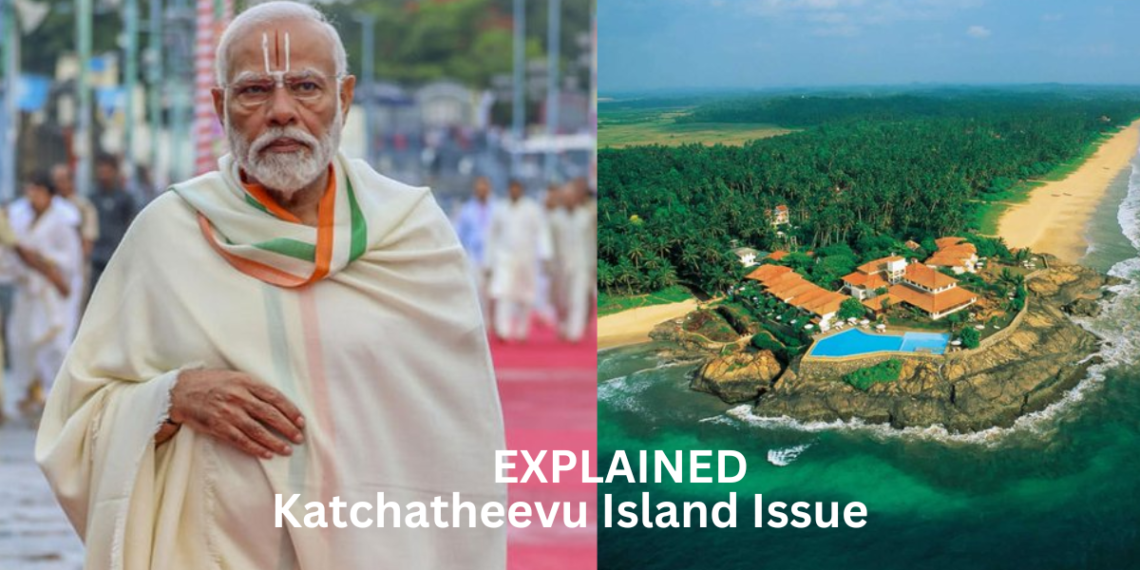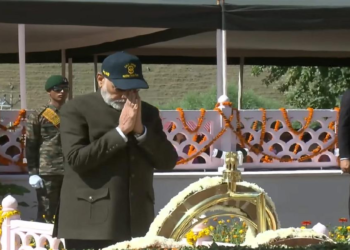Katchatheevu Island Row: The contentious issue surrounding the relinquishment of India’s Katchatheevu Island to Sri Lanka has again come under the spotlight, with Prime Minister Narendra Modi reigniting the debate by questioning the Congress party’s decision in a recent social media post. The controversy stems from the historic decision made during Indira Gandhi’s prime ministership in 1974, where India ceded control of the uninhabited island to Sri Lanka as part of a maritime agreement.
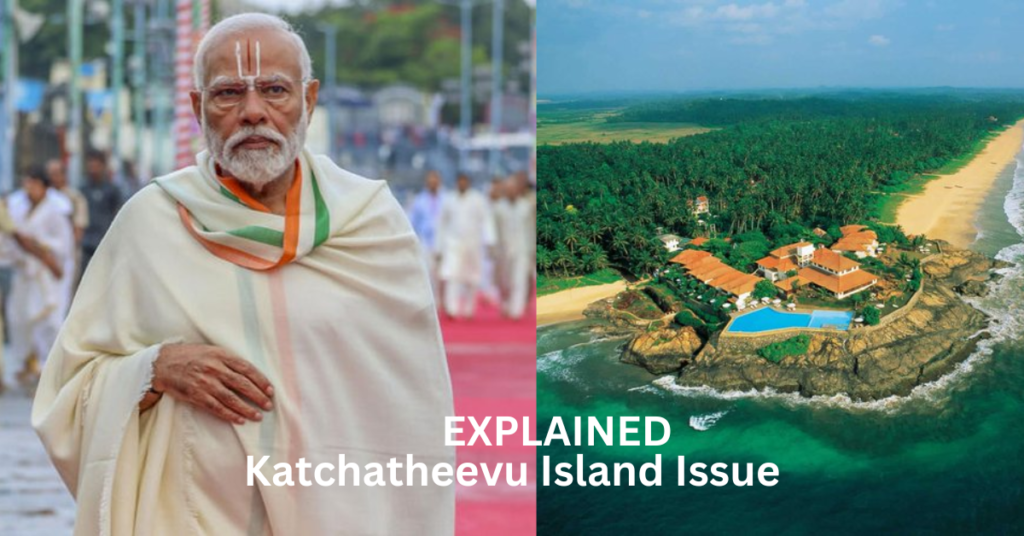
Prime Minister Modi’s scathing critique of the Congress party’s actions has reignited public interest in this decades-old dispute, with new revelations surfacing about the circumstances leading to the transfer of Katchatheevu. The BJP’s Tamil Nadu campaign, spearheaded by party chief K Annamalai, has unearthed documents suggesting that Congress displayed apathy towards the strategic significance of the island, further fueling the political firestorm.
Also Read – BJP’s ‘Khaandani Lootero Ka Sach’: A reminder of Political Accountability
Where is Katchatheevu Island Located?
Situated in the Palk Strait between India and Sri Lanka, Katchatheevu is a minuscule, uninhabited island spanning approximately 285 acres. Its geographical coordinates place it northeast of Rameswaram, a mere 33 kilometers from the Indian coast. Despite its diminutive size, Katchatheevu occupies a significant place in the region’s historical and geopolitical landscape.
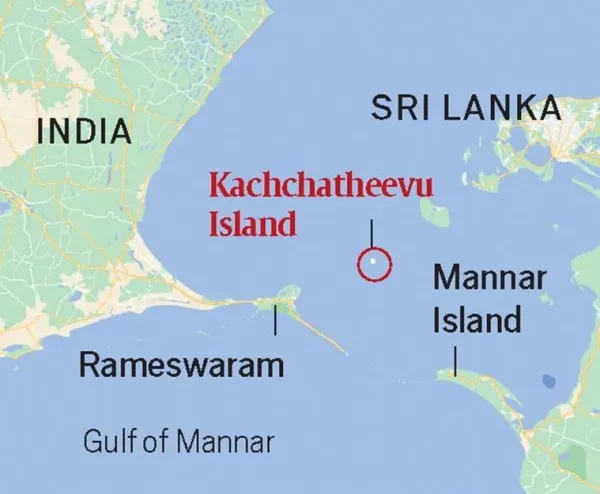
Notably, the island is near Jaffna, the northernmost tip of Sri Lanka, and Delft Island, an inhabited territory under Sri Lankan jurisdiction. The absence of a reliable source of drinking water renders Katchatheevu unsuitable for permanent settlement, relegating it to the realm of symbolic and strategic importance in the India-Sri Lanka relationship.
Did Congress Give This Island to Sri Lanka in an Agreement?
The controversial decision to relinquish India’s claims over Katchatheevu came to fruition in 1974 under the leadership of then-Prime Minister Indira Gandhi. The Indo-Sri Lankan Maritime agreement brokered during diplomatic overtures between the two nations, which saw India ceding control of the island to Sri Lanka to solidify bilateral relations.
Indira Gandhi’s rationale behind the decision stemmed from the perceived lack of strategic value attributed to Katchatheevu and the desire to foster closer ties with Sri Lanka. Despite assurances that Indian fishermen would retain access to the island for traditional practices, subsequent interpretations by Sri Lanka led to disputes over fishing rights, exacerbating tensions between the two nations.
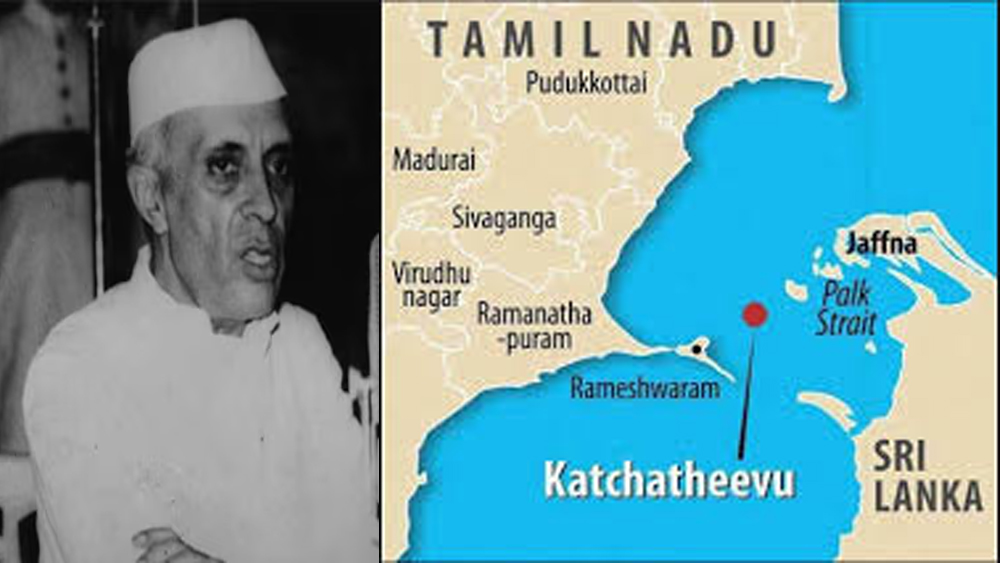
The contentious nature of Katchatheevu’s transfer continues to reverberate in Tamil Nadu’s political landscape, with successive administrations vehemently advocating for the retrieval of the island and restoring fishing rights for Indian fishermen. However, the Union government’s stance remains steadfast, citing historical agreements and diplomatic constraints as impediments to substantive action.
In 2014, former Attorney General of India Mukul Rohtagi told the Supreme Court that the agreement between India and Sri Lanka meant India could get back Katchatheevu Island only through a war. He said, “Katchatheevu went to Sri Lanka by an agreement in 1974… How can it be taken back today? If you want Katchatheevu back, you will have to go to war to get it back.”
Why is the Tamil Nadu BJP bringing up the Katchatheevu Island Issue?
The Tamil Nadu unit of the Bharatiya Janata Party (BJP) has intensified its campaign to address the plight of Indian fishermen facing arrests by the Sri Lankan navy in the waters surrounding Katchatheevu. The island’s transfer to Sri Lanka and subsequent escalation of maritime tensions have spurred the BJP’s efforts to champion the cause of Indian fishermen’s rights.
Armed with the narrative of historical injustice and the adverse impact on the livelihoods of Tamil Nadu’s fishing communities, the BJP has sought to mobilize public opinion and garner support for its demand to reassess India’s position on Katchatheevu. The party’s advocacy for the retrieval of the island or the restoration of fishing rights reflects a broader commitment to safeguarding the interests of Tamil Nadu’s coastal communities.
By leveraging Katchatheevu as a rallying point, the Tamil Nadu BJP aims to amplify its influence and galvanize support ahead of crucial electoral contests in the state in the upcoming Lok Sabha Elections 2024.


